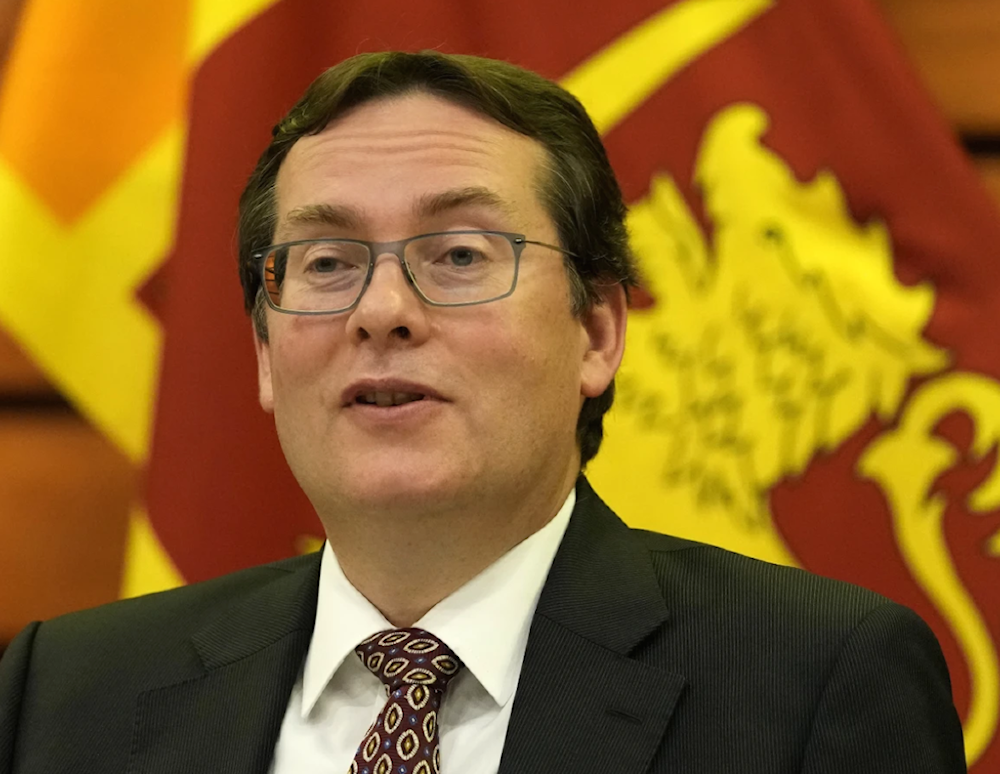IMF: Sri Lanka's new gov't to stick within IMF 'guardrails'
The International Monetary Fund (IMF) announced that Sri Lanka's new government, led by President Anura Kumara Dissanayake, has agreed to continue with a controversial IMF bailout plan.
-

Peter Bruer, IMF Mission Chief for Sri Lanka, speaks at a press conference in Sri Lanka on March 21, 2024. (AP)
The International Monetary Fund revealed Saturday that Sri Lanka's new government has decided to proceed with a contentious IMF bailout proposal that includes strict austerity measures and economic changes.
The IMF reported an agreement with President Anura Kumara Dissanayake's administration to continue with the four-year loan agreed by his predecessor last year. According to IMF team head Peter Breuer, "The authorities have committed to stay within the guardrails of the program."
He explained that the new government's commitment ensures policy continuity.
Bruer emphasized that maintaining the momentum of reforms is essential to protecting the program's achievements and ensuring the economy's long-term recovery, stability, and inclusive growth.
Sri Lanka will be allowed to withdraw $333 million by the end of the year, subject to IMF board approval. Last month, Dissanayake's temporary government approved a contentious restructure of $14.7 billion in foreign commercial loans negotiated by former President Wickremesinghe.
Sri Lankans elected Anura Kumara Dissanayake as their new President in September, entrusting him with combatting corruption and strengthening the country's fragile economic recovery following its worst financial crisis in decades.
Despite being a small party, support for the 55-year-old Dissanayake's JVP increased during a 2022 economic collapse that impoverished millions of poor Sri Lankans and the agonizing implementation of the IMF rescue plan.
Sri Lanka's collapsed economy
Former Sri Lankan President Mahinda Rajapaksa's tenure saw the launch of the Hambantota Development Project, which was considered one of the white-elephant projects during his decade-long rule until 2015.
In 2017, unable to repay a substantial loan taken from China for the construction of the Hambantota port, Sri Lanka transferred it to the state-owned China Merchants Group for $1.12 billion under a 99-year lease.
In April 2022, Sri Lanka defaulted on its $46 billion external debt when it ran out of foreign exchange to cover essential imports like food, fuel, and medicine, causing a record 7.8% GDP decline.
To address its financial woes, Sri Lanka secured a $2.9 billion bailout from the International Monetary Fund (IMF) last year. However, the IMF program is contingent on reaching a debt agreement satisfactory to foreign creditors.
China reaffirmed its commitment to supporting Sri Lanka in March 2024, as the prime minister of the crisis-stricken island nation concluded a visit to Beijing to finalize a debt restructuring agreement.

 3 Min Read
3 Min Read








